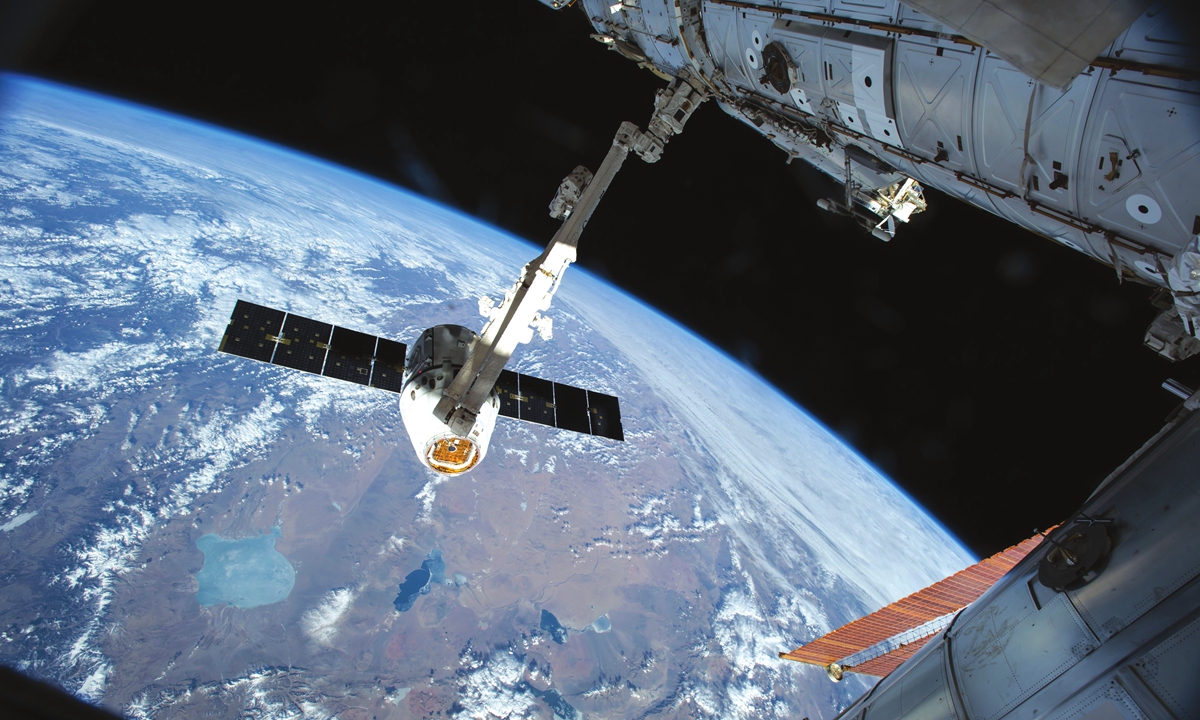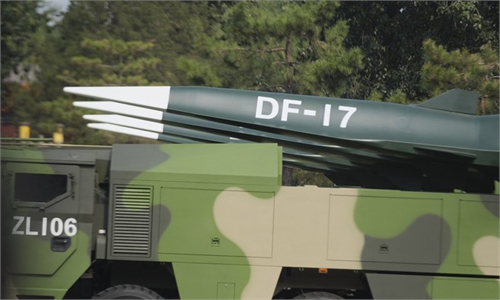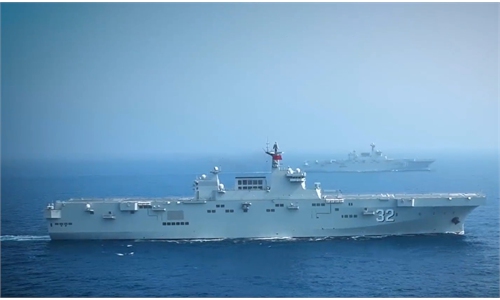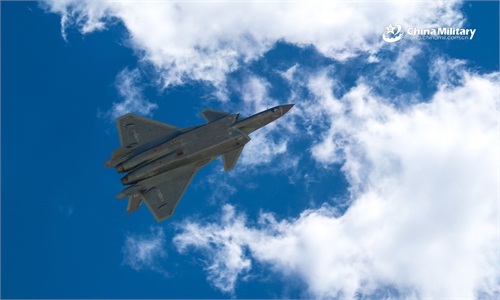Chinese experts urge avoidance of space weaponization amid commercial space capability deployment in Ukraine

The Canadarm 2 reaches out to grapple the SpaceX Dragon cargo spacecraft and prepare it to be pulled into its port on the International Space Station on April 17, 2015. Photo: VCG
Chinese military experts urged on Tuesday that countries around the world should hold talks and negotiations over arms control in space in order to avoid weaponization of outer space and space wars amid wider deployments, more applications and expanding capabilities of satellites in wars, at a time when General Jay Raymond, the head of US Space Force, recently described the ongoing conflict in Ukraine as the "first war where commercial space capabilities have really played a significant role."
Raymond made the remarks in an interview published earlier this month by the BBC, which also claimed that the Ukraine crisis is also the first major conflict in which both sides have become so reliant on space.
While Raymond did not give precise details of how the US and its allies have been helping Ukraine, he gave a clear indication of what it's been doing. "We use space to help strike with precision, we use space to provide warnings of missiles, of any threat that could come to the United States or to our allies or partners," the BBC quoted Raymond as saying.
There are already more than 5,000 satellites in space - most are operated for commercial purposes, and Ukraine has had access to unprecedented amounts of commercial satellite imagery, which served purposes in intelligence, surveillance, reconnaissance, communications and precision weapon guidance, according to the BBC report.
The increasing reliance on space raises concerns that the conflict could spread beyond land, sea and air, and in reality, the militarization of space is well under way, the BBC said.
Song Zhongping, a Chinese military expert and TV commentator, told the Global Times on Tuesday that the first "space war" is widely believed to be the Gulf War in 1991, in which the US military deployed almost all of its military satellites and some of its commercial satellites to take initiatives in the war by providing support to traditional forces. In the Russia-Ukraine conflict, Russia carried out jamming and sabotage operations to prevent Western commercial satellites from providing these kinds of support to Ukraine.
But these "space wars" still have not involved aerospace weapons of belligerents conducting attack and defense against each other, Song said.
It is an important but sensitive question over whether future warfare will expand to space from land, sea and air, Huang Zhicheng, a Chinese expert in aerospace science and technology, told the Global Times.
Current space militarization is still limited to providing information support, and people should be cautious over a space weaponization, Huang said. This could include a spacecraft attacking a satellite, a land-based missile attacking a satellite, a spacecraft attacking targets on the ground, as well as electronic jamming against satellites, according to Huang.
To prevent this, countries around the world should hold talks and negotiations over arms control in space under the framework of the UN, Huang said.
It is also worth noting that the US is attempting to gain military high grounds in space with its technological advantages and low launch cost, Zhang Xuefeng, another Chinese military expert, told the Global Times on Tuesday.
The US is also attempting to obtain an exclusive anti-satellite capability advantage over other countries, Zhang said. US' land-based mid-course antiballistic missile system and ship-based Standard Missile 3 are all mature anti-satellite technologies, but the US called for other countries not to conduct direct-ascent anti-satellite tests, Zhang said.




